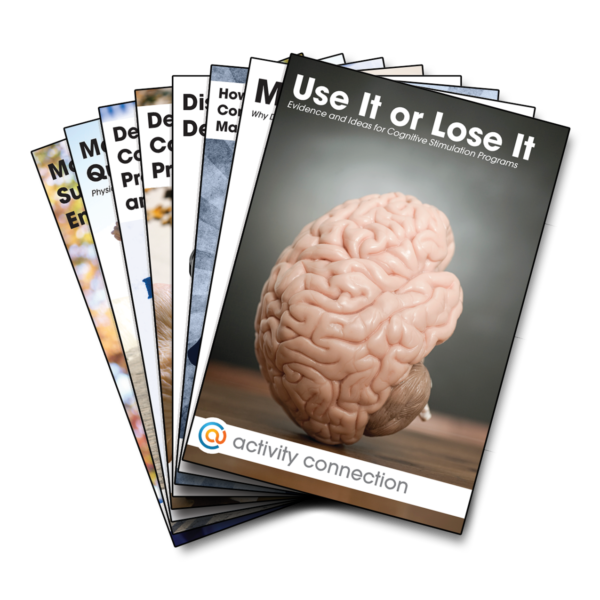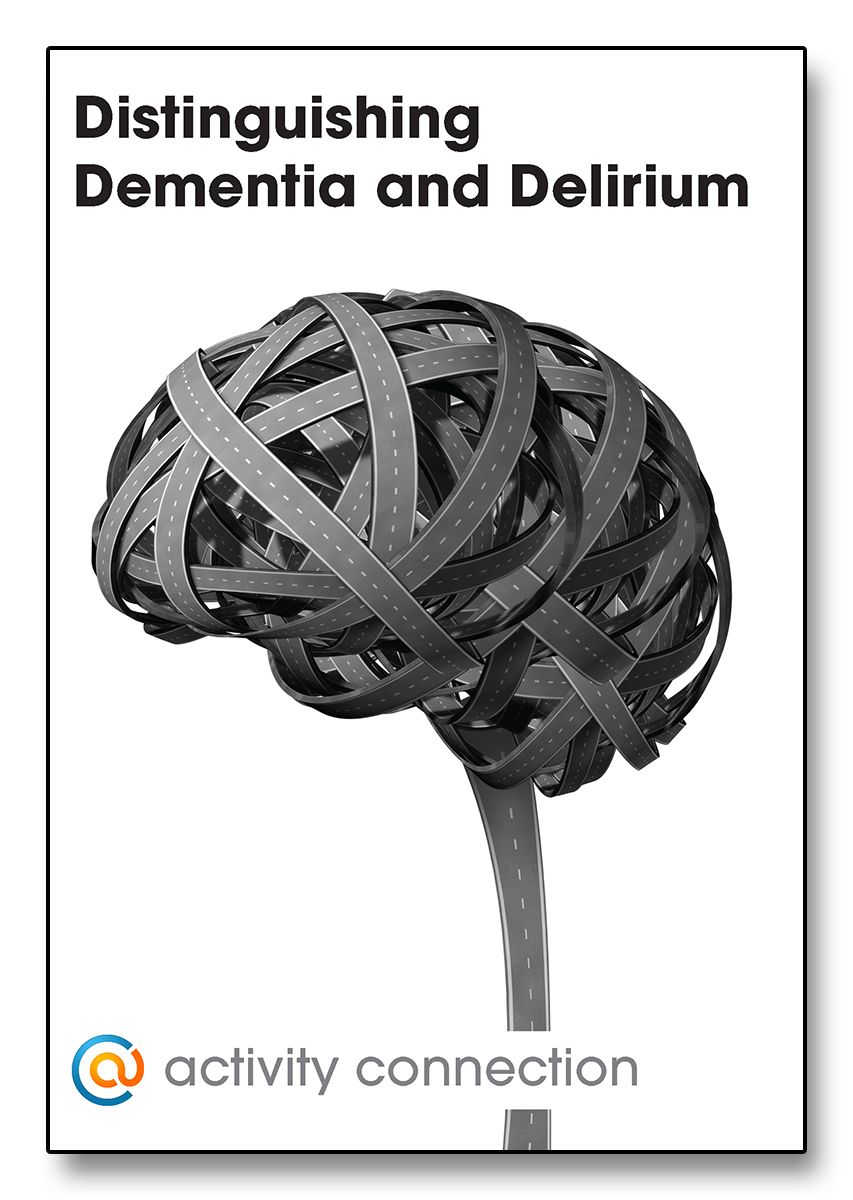Cognitive Stimulation Vol. 04
Volume 4: Distinguishing Dementia and Delirium
In this presentation, you will learn about the most common types of dementia and how they differ from delirium. Differences in different types of dementia will be discussed as that knowledge can be used to better help people with dementia. You will also learn basic information about commonly prescribed memory drugs.
Learning Objectives
- Be able to describe the difference between dementia and delirium.
- Be better able to recognize sudden worsening of cognitive ability that might not be dementia and might be treatable.
- Be able to explain differences in the most common types of dementia.
DVDs have been discontinued. This updated video is now available on the course test page.
Related products
Most recent products from this category

Cognitive Stimulation
Volume 8: Maximizing Social Support and Social Engagement In this presentation, you will learn how social support and loneliness are related to mental and physical health outcomes. You will learn many invaluable strategies to maximize social support and engagement among older adults in a variety of environments. These strategies can dramatically improve quality of life for many older adults. Learning Objectives
- Better understand how perceptions of social support and loneliness can change during older adulthood.
- Better understand how perceptions of social support and loneliness can affect mental and physical health.
- Be able to describe numerous strategies to enhance perceptions of social support and decrease loneliness.

Cognitive Stimulation
This complete set of eight courses, is offered for $199.50, a discount of more than 1/3 when compared to purchasing the courses separately. After viewing the videos and passing the online tests, you will become a Certified Cognitive Stimulation Instructor. A certification like this demonstrates that you are on the cutting edge. Families will be comforted to know that you and your community care about their loved ones and their quality of life. People who complete the certification training and testing will be certified for two years. To become recertified, they just need to complete 3 hours of training and testing within the two years before their certification expires. DVDs have been discontinued. This updated video is now available on the course test page.

Cognitive Stimulation
Volume 3: How the Brain Makes Memories, Controls Behavior, and is Related to Many Common Problem Behaviors In this presentation, you will learn how the various lobes of the brain help control mental processes. In particular the role of attention and concentration (i.e., executive functioning) in the lives of aging adults will be discussed. Also, valuable information about enhancing executive functioning in order to maximize quality of life, in people who already have memory impairment, will be discussed. Learning Objectives
- Be able to help people with memory impairment process information at a deeper level in order to encode new memories.
- Be able to describe what lobes of the brain handle basic cognitive functions (e.g., attention, language, vision, and planning).
- Be able to describe different behaviors and interventions that can improve executive functioning (i.e., attention, inhibition, and planning).

Cognitive Stimulation
Volume 2: Memory: Why Do We Forget, How Does Memory Change as We Age? In this presentation, you will learn how we make new memories, why we forget, and how memory changes as we age. There is good news, in that some cognitive abilities remain relatively intact and we’ll discuss how to take advantage of those in older adults with memory impairment. Learning Objectives
- Be able to tell the difference between different types of memory and how they change as people age or develop dementia.
- Know why memory failures occur.
- Be able describe the types of cognitive abilities that remain relatively intact during older adulthood and through most stages of dementia.

Cognitive Stimulation
Volume 7: Maximizing Quality of Life: Physical Exercise, Nutrition and Sleep Affect Memory Ability Matter In this presentation, you will learn how physical exercise, nutrition, and better sleep can maximize cognitive ability and quality of life. You will also learn strategies to motivate people to engage in these positive lifestyle behaviors. Older adults will benefit from your knowledge of these important factors. Learning Objectives
- Be able to describe how exercise affects cognition and what types of exercise affect which cognitive abilities.
- Be able to give advice as to how nutrition can aid cognition and overall health.
- Better understand the relationship between sleep and cognition and how sleep quality can be improved.

